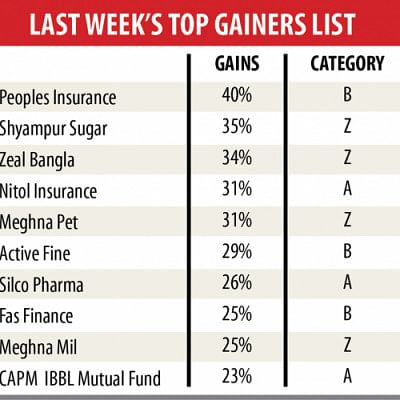BSEC has a grand plan to crack down on junk stocks

The new governing body of the stock market regulator, it seems, is earnest in its efforts to straighten out the bourse that has long been a playground for rogue players.
One such plan it is working on entails appointing administrators in companies whose stocks have turned junk such that they can be in the black once again.
"We want to restore discipline in the market. We want to see quality stocks in the market," Shibli Rubayat-Ul Islam, the newly-appointed chairman of the Bangladesh Securities and Exchange Commission (BSEC), told The Daily Star yesterday.
Stocks of companies that have failed to hold an annual general meeting on time, or did not declare a dividend in a year or are not operational for more than six months are termed junk stocks or Z-category companies.
"We are working on a detailed plan that will be implemented according to rules and regulations," he said, adding that the plan will be finalised in a meeting next week.
Several departments of the commission have already put forward their suggestions in this regard.
"The companies will get all-out cooperation from our end. But the ones who intentionally remain junk will face the music," said Islam, who took the helm of the country's stock market regulating body in May.
The BSEC is planning to work on the junk stocks in three stages.
In the first phase, it will upgrade the companies that are very close to booking profits, or have large retained earnings or adequate cash flow.
There are two to five companies in this stage and a decision will be taken about them by checking the last few years' financial reports, said Islam, who was previously the dean of the Dhaka University's faculty of business studies.
In the second stage, the regulator will support the companies that are struggling but are making an honest effort to return to profit.
"And in the final stage, we will punish the worst performers by either changing their boards or by deploying administrators," Islam said.
The Dhaka Stock Exchange now trades 53 junk stocks, of which nine have not been paying any dividend for more than a decade but they remain in the top gainers' chart thanks to gambling and rumours.
The nine companies are: Dulamia Cotton, ICB Islamic Bank, Jute Spinners, Meghna Condensed Milk, Meghna Pet Industries, Samata Leather Complex, Savar Refractories, Zeal Bangla, and Shyampur Sugar Mills.
"Though the companies are counting losses, their stock prices are high. This is suspicious," Islam said.
The BSEC's plan has been welcomed by merchant banks, who said special audits should be run into all the Z-category companies through reputed auditors and check their transactions since listing.
"Then the wrongdoings of the companies could be detected," said a merchant banker requesting anonymity.
The BSEC may fine the errant directors based on the findings of the audits.
"This will set a precedent," he added.
The Dhaka bourse in 2018 had cracked down on some junk stocks and delisted Rahima Food Corporation and Modern Dyeing from the DSE board.
But the step drew criticism as it did not help stock investors recoup their losses or could not ensure punishment for the directors who were responsible for the precarious financial situation of the companies.
In the same year, the DSE identified 14 companies that had not paid a dividend for the previous five years for their performance review and see if they have any potential to return to the black.
The bourse found many companies had no such potential but it had not taken any steps against them as it can only delist companies as a punitive action, said a top official of the DSE, preferring anonymity.
"But delisting is not the solution. It only aggravates the woes of the stock investors because their whole investment goes down the drain due to the delisting."
The then authorities of the BSEC also asked the DSE not to delist the companies but send their findings to the regulator.
"We had sent our findings to the BSEC but did not see any actions."
The new commission will take some fresh measures, which may bring some good results for the market, the DSE official added.
"A company can incur losses for a while. This is normal. But some companies are fleeing by taking investors' money intentionally. We will punish them," Islam added.

 For all latest news, follow The Daily Star's Google News channel.
For all latest news, follow The Daily Star's Google News channel. 



Comments